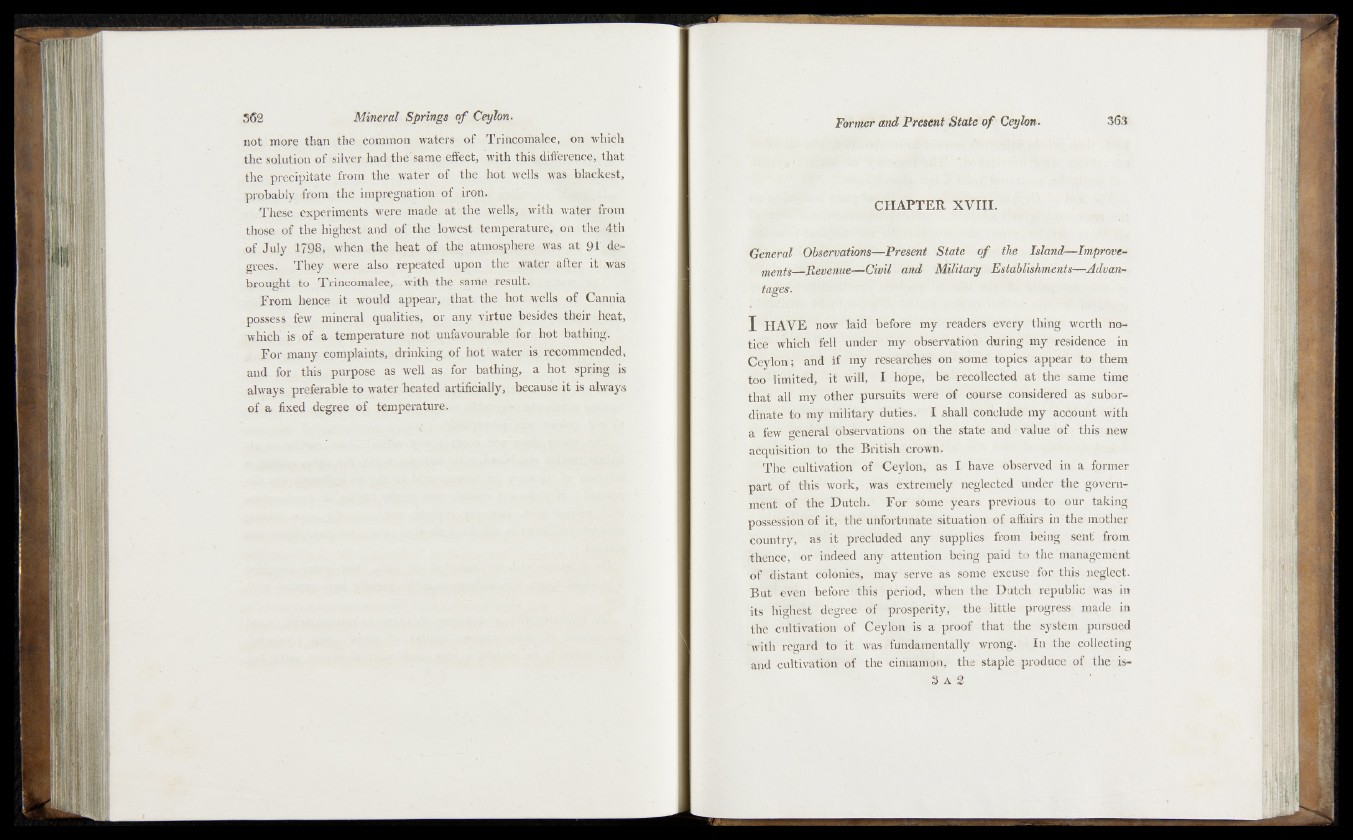
not more than the eomnion waters o f Trincomalee, on which
the sqliitinn of silver had the same effect, with thife «difference, tljat
the precipitate from the water of the hot wells was blackest,
probably .fepm dh# impregnation of iron-
These experiments were made a t ’the wells?:, with water from
those of the highest and of the lowest temperature, on the 4th
;of July 1798, when the heat of the atmosphere was at 9 t M r
grees. They vwere also, repeated upon the water after it was
brought 4» Trincomalee, ■ with the' same rest^-
From hence it would appear, that the hot wells of' Cannia
possess few mineral qualities, or any virtue beside^, their heat,
which is , of a temperature not unfavourable for hot bathing!
Tor many- complaints, drinking of hot'water is recommended,
and for. this „purpose as well as for bathing, a hot spring is
always preferable to water heated artificially, because it is always
of a fixed degree of temperature.
CHAPTER X V III.
General Observations—Present State o f the Island—Improvements—
Revenue— Civil and Military Establishments—Advanr-
■ tagesr.
I HAVE n ow 'la id ’before my readers every thing worth notice
' which fell under my- observation during my residence in
Geylbir; and if my researches on some' topics appeals to them
töo^littiitddi it will, I hope, ; be ‘irecoBeetèd at thé same time
that aïf my?Other pursuits were of course considered as subor-:
dilate'tb.‘my military duties. I shah Conclude my^Wc^hat with
a few- general ^observations on the state and ■ value of this new
acqn^ïtiön'tö the- British crown.
The'‘Cultivation ’ of ‘CCylon, as I have ‘observed , in a former
part*‘of, this' work, was extremely neglected under the govern-
rrilnjc of the Dutch. For some years* previous to our taking
poSsëlsflii^óf it,1 the unfortunate situation of affairs in'the* mother
country^ as it precluded any supplies, from being,.' sent from
ittfehCfe, ■> knh indeed any attention being paid to th e ïhanagemènt
of" distant cóloniè§, may serve afe soihe excuse f for -this .^egléet.
But* even before*1 this period, when the Dutch republic'Was in
^ highest dtegreBf i f prosperity, the «Ikfetde progress? i s ^ e r b 1
^fe-dÉÉtiataOn of Ciylbii is a proof that the system pursued
'with regard!to it wa#fuhdamentally wrong.' In .the..collecting
and cultivatidh of the cinnamon, the staple, produce of the; is-
3 a 2